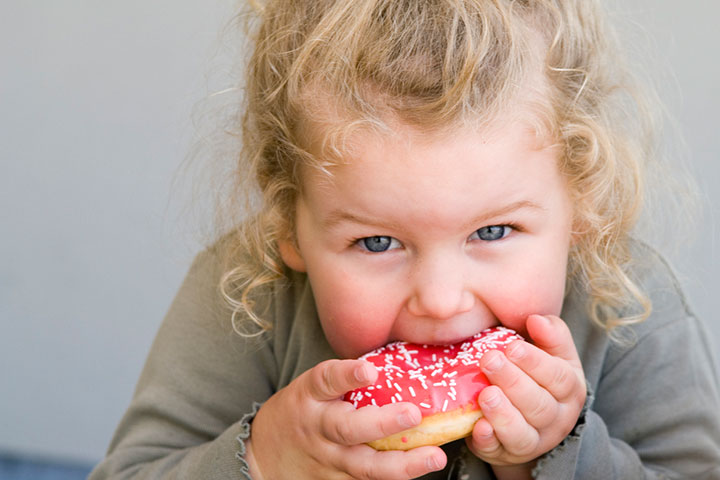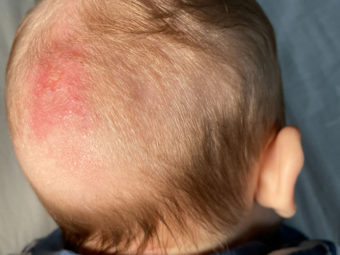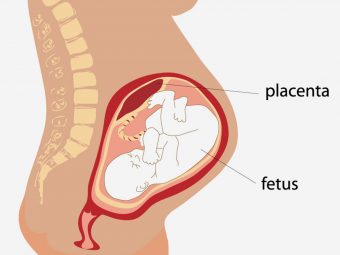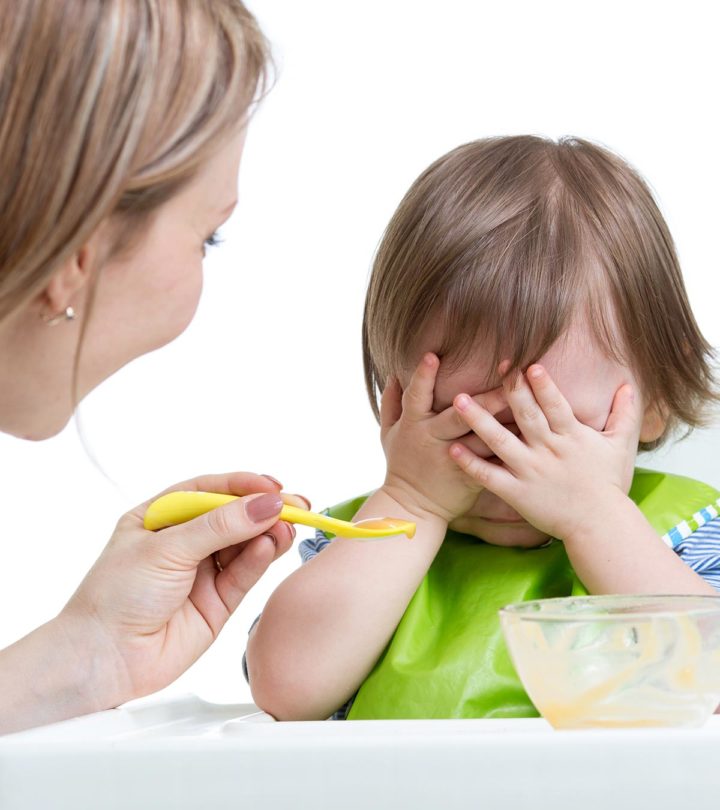
Occasional loss of appetite in toddlers is common. And although it is generally not a cause for concern, you should consult the doctor if it is accompanied by signs of chronic illnesses or weight loss (1).
Also, persistent loss of appetite can delay the growth of babies and make them prone to other diseases. Read on to know about appetite loss in toddlers and ways to help them regain it.
Is It Normal For Toddlers To Have Appetite Loss?
Toddlers tend to have erratic appetite due to their growth spurts and psychological development. There may be a variable intake of meals in a day, as well. If your toddler appears healthy and seems to be growing at a normal pace, then there is probably no reason to be concerned about their poor appetite (2). However, parents need to know the reasons behind the lack of appetite in toddlers (3).
What Are The Causes Of Loss Of Appetite In Toddlers?
The following are the common reasons behind the loss of appetite among toddlers (2) (4) (5) (6).
- Illness: If your toddler has a fever, sore throat, abdominal discomfort, mouth ulcers, or any other symptoms of poor health, then they will not feel like eating. Consult a doctor if your child is unwell.
Image: IStock
- Extra calorie intake: Lack of appetite in toddlers can also be due to reasons other than illness. These causes may include eating too many snacks or junk food between meals, drinking high sugar beverages, such as juice, in between meals, and burning fewer calories due to inactivity.
- Food preferences: Toddlers are at an age where they develop preferences towards certain foods. They are likely to become picky eaters. Force-feeding the foods they dislike may cause a loss of appetite.
- Changes in the body: Growth spurts and other changes to the body can significantly affect eating patterns. Developmental transformations can influence a toddler’s daily food intake and cause changed dietary needs.
- Changes in attention span: Toddlers tend to have a short attention span and are often restless, making it difficult to sit and eat completely during mealtimes.
- Throwing tantrums: Toddlers have a tendency to throw tantrums, especially when they are not given their favorite food. Repeated tantrums, which are not managed properly, may lead to loss of appetite.
- Medicines: Some medicines, especially antibiotics and albendazole, cause a metallic taste in the mouth and loss of appetite.
Image: Shutterstock
You can usually identify the cause behind the toddler’s weak appetite through observation and experience. However, it is good to seek medical help under certain circumstances.
When To Seek Medical Help?
See a doctor if you experience any of the following situations with your toddler (7) (4).
- Loss of appetite for a month
- Loss of weight
- No weight gain in six months
- Gagging and vomiting of food
- Eats only a few foods
- Lethargy and lack of energy
- Other health issues, such as fever, diarrhea, constipation, abdominal pain, shortness of breath, and cough
- You observe jaundice or yellow-colored urine in the child
Parents should see a doctor if they suspect that their child is not eating a normal amount of food and may have an eating disorder. An eating disorder can cause difficulty in consuming adequate food and leads to a poor diet. The toddler may also consistently insist on eating only one type of food. An undiagnosed eating disorder may cause a chronic loss of appetite and affect a toddler’s growth (8).
How To Get Your Toddler’s Appetite Back?
Here are some ways to encourage your toddler to eat properly and overcome the loss of appetite (2) (9).
- Make mealtime interesting: Mealtimes are important social times for growing children. Prepare different foods in interesting colors and shapes. Have conversations about the food item. Let the family eat what is being offered to the toddler to set an example for the little one. Make them sit and eat with the whole family at mealtime. They should have their own plate and cutlery, rather than being fed from elders’ plates. This practice in the long run can help with healthy eating habits.
 Quick tip
Quick tip- Give freedom of choice: Let the toddler pick their food and portion sizes. You can begin with foods that they like and gradually move to the foods that they dislike. Providing a choice to the toddler can help change their perception towards eating and help get rid of their fussy eating. It can help curtail the loss of appetite over the long term.
Image: IStock
- Serve small portions frequently: Children have smaller stomachs than adults and tend to have low food intake. Consider feeding five to six small meals a day rather than fewer yet large meals.
- Provide healthy snacks: Preventing a toddler from eating between meals can be difficult. In addition, snacking can be on the rise when the toddler is undergoing a growth spurt. In such cases, provide healthy food as snacks, such as fresh fruits, vegetable salad, or boiled vegetable pieces. These can be served as finger foods that satiate hunger, are high in nutrition, and leave enough space for meals in the tummy.
- Make them drink water: If your child is thirsty between meals, then offer water for hydration. Avoid giving packaged juices or homemade juices that contain added sugar. Limit the amount of juice your child drinks to less than six ounces a day.
- Offer whole milk: A toddler should have whole milk since it contains more nutrients compared to low-fat milk. Provide a glass of whole milk between meals so that the toddler’s tummy is full until mealtime.
- Do not force-feed: Forcing a toddler to finish all the food on their plate can make them lose interest in eating. Instead, serve the quantity of food that they are likely to consume. If your toddler refuses to eat something, then instead of forcing the little one, try to make them eat during the next meal.
- Keep changing the menu: Keep shuffling between different nutritious food picked from a food group to make healthy meals. A single meal can be an assortment of various food items from various food groups. You can also maintain a diet chart to make it easier to include various food items in the toddler’s diet.
- Avoid distractions: Maintain an eating environment free of distractions, such as watching TV. Other distractions like toys or books should also be kept away. Mealtime should be a quiet time when the entire family can relax and eat. Also, teach your child to have food in small bites, calmly, rather than eat with haste. Encourage them to chew the food properly before swallowing.
Image: Shutterstock
- Introduce new foods: If your toddler has favorite foods, then try introducing other similar foods. For instance, if they enjoy butternut squash, then you may introduce other pumpkin and related squash preparations. Use one food as a gateway to introduce others and increase their taste preferences.
- Combine complementary foods: Serve foods that your toddler dislikes with foods that they like. For instance, if your toddler doesn’t like carrots, then mix mashed carrots with mashed sweet potatoes. Broccoli can be baked with cheese to make it more interesting.
You can also let the toddler watch you prepare meals. Sonam Sodani, a mom blogger, shares her approach to getting children interested in certain foods, “I show my toddler raw vegetables while chopping and then show him the state of cooking. Later, when served on the table, he already has some connection with it and is more ready to try it (i).” Such interactive approaches may make mealtimes more exciting and encourage your toddler to explore new flavors. Let the toddler play their part, such as taking out the vegetables from the basket or washing the fruits. Making food interesting and fun is an excellent way to improve a toddler’s eating habits and resume a normal diet.
How Much Food Is Enough For Toddlers?
During toddlerhood, children usually eat solid food while also having breast milk or formula. Consider the following points about the quantity of food your toddler would need (10) (11).
- Toddlers need about three quarters to a cup of food per meal. There should be three to four meals a day.
- You can include one to two snacks between the meals.
- Once the toddler starts walking without support, you can serve four to five small meals a day and two snacks in between each meal.
- Serve one to two cups of milk in a day.
Toddlers can require between 1,000 to 1,400 calories a day, depending on their age and health. Do not hesitate to speak to your nutritionist or doctor to determine how much your child should eat to prevent any nutritional deficiency. Below is a general estimate of the amount of food your toddler needs across various food groups.
| Food group | Recommended quantity per day | Varieties to add/ avoid |
|---|---|---|
| Grains | 3-5oz of whole grains | Include an assortment of grains, like wheat, rice, millet, pulses. |
| Vegetables | 1 to 1½ cups of raw or cooked vegetables | Add a variety of vegetables with an assortment of colors. |
| Fruits | 1 to 1½ cups of fresh fruits You can also give canned, frozen, or dried fruits | Avoid giving fruit juice to a toddler since commercial fruit juices contain added sugar and preservatives. Whole fruits are the best since they are a source of fiber. |
| Milk | 2 to 2½ cups | Only serve whole milk since it is rich in calcium and fat that are needed by growing toddlers. Also, include a serving of dairy products, such as cheese, yogurt, and butter. |
| Meat | 2-4oz | An assortment of meat, such as red meat, lean meat, poultry, and seafood. |
Stick to homemade snacks such as fruits, boiled vegetables, and baked items with low sugar and fat. Never give a toddler carbonated beverages and energy drinks since they contain surplus sugar and potentially harmful compounds that might disturb their digestive system.
Things To Avoid If A Toddler Refuses To Eat
Do not resort to the following methods to stimulate a toddler’s lost appetite.
- Force-feed the toddler.
- Spoon-feed the toddler unless they are unwell. Always encourage a toddler to eat themselves.
- Scold or punish if they do not feel like eating something.
- Bribe a toddler to eat a particular food. They might eventually become more interested in the treats rather than healthy meals.
- Serving high-sugar commercial snacks.
Image: IStock
- Force them to eat new foods anyway. Try another day or whenever your toddler seems receptive to trying it.
- Force a toddler to sit on a chair/highchair if they have not finished their meal. It can make the toddler perceive mealtime as punishment.
 Quick tip
Quick tipFrequently Asked Questions
1. Can teething cause loss of appetite in toddlers?
Yes. Teething may cause a loss of appetite in toddlers because of the swelling and pain in the gums (12).
2. What vitamins can I give if my child is not eating properly?
If your child is not eating properly, you may give them (13)
- Vitamin B
- Vitamin A
- Vitamin D
3. Can anxiety or stress cause loss of appetite in toddlers?
Anxiety and stress can disrupt a child’s normal eating patterns and may cause appetite loss. According to the American Psychological Association, some of the other signs that may accompany appetite loss in children due to stress include headaches, crying, sleep disturbances, recurrent bedwetting, acting irritable or moody, mild stomach cramps and other physical symptoms with no physical illness (16)(17).
4. What role does physical activity play in a toddler’s appetite?
Regular exercise or physical activity can increase a toddler’s energy expenditure, stimulating their appetite. It can also help toddlers develop a better sense of their hunger and satiety cues. Moreover, physical activity can increase the blood flow to the digestive system and help optimize the absorption of nutrients, which can, in turn, support a healthy appetite.
Loss of appetite in toddlers may concern parents, but it is not a reason to worry if children grow well and look healthy. However, it is good to find out the exact reason for your children’s loss of appetite as this will help you find a proper solution. The condition may occur due to various reasons, such as illnesses, food preferences, or changes in eating patterns. Seek a doctor’s advice if you think your child is not growing well or experiencing lethargy, loss of weight, or other health issues. You may also help children eat appropriately by making the mealtime enjoyable, serving small portions of food at regular intervals, or including healthy snacks. If your child has a loss of appetite, do not force-feed them or serve high-sugar snacks.
Infographic: How To Get Your Toddler’s Appetite Back?
Loss of appetite is common among toddlers, but it doesn’t have to be a permanent problem. By making simple changes to their diet and mealtime routine, you can help encourage your little ones to start enjoying their meals again. Check out the infographic for effective strategies, try them, and see a difference in their eating habits. Illustration: Momjunction Design Team
Key Pointers
- Toddlers losing their appetite is common and typically not a reason for alarm.
- Toddlers’ lack of appetite can be brought on by many conditions, excess caloric intake, food preferences, physical changes, attention span changes, temper tantrums, or medications.
- If a child’s loss of appetite lasts for a month, there is weight loss, no weight increase in six months, gagging or food vomiting, eating only a few meals, tiredness, or other health problems; parents should seek medical attention.
- Parents can make mealtimes engaging, allow freedom of choice, provide wholesome snacks, and restrict sugary drinks to encourage their kids to eat correctly.
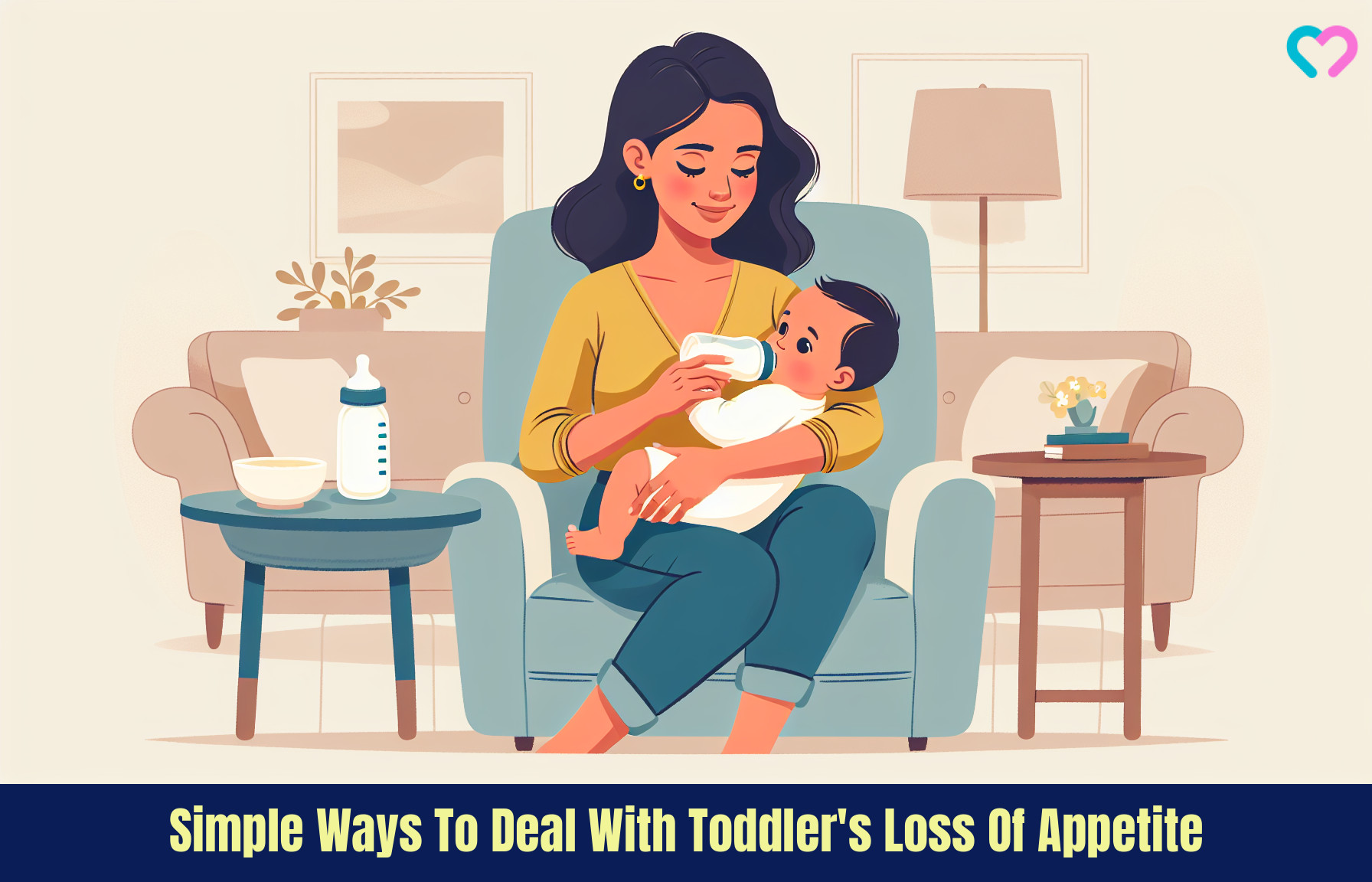
Image: Stable Diffusion/MomJunction Design Team
Discover helpful techniques for assisting your children in managing decreased appetite, and enhancing their overall well-being. Find out valuable ideas for ensuring their health while instilling excellent habits.
Personal Experience: Source
MomJunction articles include first-hand experiences to provide you with better insights through real-life narratives. Here are the sources of personal accounts referenced in this article.
i. Six steps to raise a healthy eater;https://sonamsodani.medium.com/six-steps-to-raise-a-healthy-eater-cae0068bf833
References
1. Nancy McGreal and Martin H. Ulshen, Your Child’s Appetite Has Changed: When To Worry; Riley Children’s Health; Textbook of Pediatric Care
2. Appetite slump in toddlers; About Kids Health
3. Alexander KC Leung et al., The ‘picky eater’: The toddler or preschooler who does not eat; National Center for Biotechnology Information
4. Toddler not eating? Ideas and tips; Raising Children Network
5. Sore throat and tonsillitis; About Kids Health
6. Fever; About Kids Health
7. Appetite Slump In Toddlers; Legacy Pediatrics
8. Hye Ran Yang,How to approach feeding difficulties in young children; National Center for Biotechnology Information
9. Why Is My Child Suddenly Not Eating?; University of Utah
10. Nutrition Through Variety; KidsHealth
11. Feeding your baby: 1–2 years; UNICEF
12. Teething; Health Navigator NZ
13. Does My Child Need A Supplement? Academy of Nutrition and Dietetics
14. Mealtime Atmosphere and Eating Behavior; The Regents of The University of California.
15. Signs Your Child is Hungry or Full; Centers for Disease Control and Prevention
16. Stressed in Childhood; Medline Plus
17. Identifying Signs of Stress in your Children and Teens; American Psychological Association









